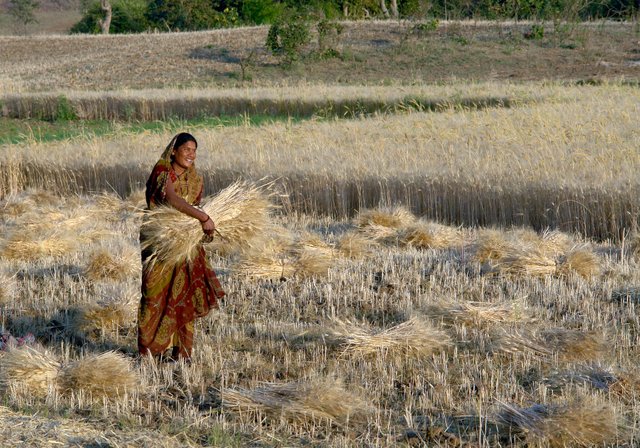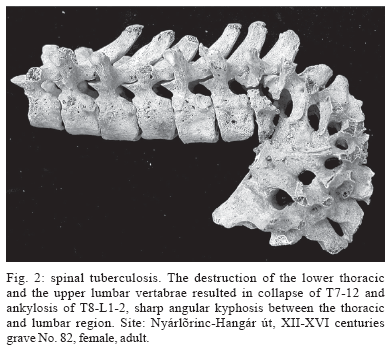Was the rise of agricultural civilization the greatest ever example of Group Selection?
Agriculture was essential for the rise of civilization
It is very well accepted that the prehistoric humans who adopted agriculture were able to increase their overall populations and population densities, and that this was a prerequisite for the rise of cities, the development of trade, and the beginnings of what is commonly termed civilization. That seems like the best explanation to me, but it does not follow that the foods produced by agriculture provide the best nutritious in terms of sustaining the health of individual human beings.

Is that because agriculture is the best way to supply nutritious food for humans?
No, because increasing population size only requires the continual production of viable offspring, who can reproduce. Even in prehistory, some individuals most likely lived well past their ability to reproduce. Older, wiser individuals (for example, a shaman) could provide important benefits to their families and tribes. In order to increase population size, agriculture needed to provide merely a sufficient source of nutrients (including energy, for example from carbohydrate-rich foods) to sustain enough individuals through their child-bearing and child-rearing years. It was not necessary that all, nor even very many, of those individuals remain healthy after producing viable offspring.
Technological change outpaced evolution
Here’s an article from the New England Journal of Medicine from 31 years ago, Paleolithic Nutritioin: A Consideration of is Nature and Current Implications. Those researchers realised that the mismatch between paleolithic and modern diets was likely the cause of many modern health problems. Most modern humans eat, and live, quite differently from our prehistoric ancestors, on whom natural selection operated to determine the evolution of our species. But, our genetic makeup has hardly changed from theirs. This is why we humans are not dealing so well eating so many carbohydrates, especially from grains and refined sugar, and high fructose corn syrup. The problems started long before industrial food production, though.
Paleopathology: early farmers had serious health problems

Many studies have uncovered a great deal of evidence that early sedentary populations had higher rates of infectious disease than more mobile and less densely populated hunter-gathers. Although not all sedentary populations had adopted agriculture, in most cases it was only after agriculture that large, sedentary populations appeared. Furthermore, many studies have found evidence of serious nutritional deficiencies in early agriculture humans. Sedentary agricultural populations had higher fertility rates, but also higher mortality rates, compared to hunter-gatherers. In ecological terms, reproductive fitness differs from physiological fitness (health).
A few examples of evidence that early farmers in different regions and at different times in the past were less healthy than hunter-gatherers
- Can Infant Malnutrition Cause Adult Vertebral Stenosis?, Clark, Spine 1985
- Biological Changes in Human Populations with Agriculture, Larsen et al. Annual Review of Anthropology, 1995
- Paleopathological changes in the Carpathian Basin in the 10th and 11th centuries, Marcsik et al., Acta Biologica Szegediensis, 2002
- Health status of the Neolithic population of Alepotrypa Cave, Greece, Papathanasiou, American Journal of Physical Anthropology, 2004
- Dental indicators of health and stress in early Egyptian and Nubian agriculturalists: A difficult transition and gradual recovery, Starling and Stock, American Journal of Physical Anthropology, 2007
The preface to the 2013 second edition of Paleopathology at the Origins of Agriculture nicely summarises the history of paleopathology and adds important new findings that were not known when the original 1984 edition was written. It’s also a good source of references for anyone who wants to look into this in more detail. They note that Jared Diamond, author of the wonderfully interesting Guns, Germs, and Steel has even called agriculture The Worst Mistake in the History of the Human Race. They also quote ancient passages taking a rather negative tone towards agriculture both in the Indian epic Ramayana and in the book of Genesis in the Bible, which shows that not all ancient peoples thought of agriculture as a blessing.
My Hypothesis: It’s the greatest ever example of Group Selection
After years of studying plankton ecology, as I describe in this post, I am now trying to connect ecological ideas to my experience with Primal Living and to the paleopathology results I described above.
Group Selection has been much-debated in ecology. Some argue that natural selection operates only on individuals, and that therefore group selection is not possible. To the contrary, I suggest that the success of sedentary agriculturalists is the greatest ever example of group selection acting on humans. It benefitted the overall population —and to be sure some individuals within it, especially the ruling class who became more wealthy and powerful—, but at the same time this lifestyle resulted in poor health for the majority of individuals.
An interesting modern corollary
Nowadays many individuals call for coercive action by governments for the supposed good of “society as a whole”, for example to counter the effects of global warming or to redistribute wealth among individuals. I do not support coercion, nor centralised decision making, but that’s a separate topic.
I’ll merely point out that actions beneficial for sustaining the population can be undertaken without coercion. We don’t have any evidence that there was any centralised, nor even decentralised, coercion behind the widespread adoption of agriculture and sedentary living, which happened independently in many regions separated by great distances, and resulted in the rise of civilization.
Even though it came about without coercion, the sudden (compared to the pace of evolution) changes resulting from agriculture and the industrial revolution are still causing health problems for many modern humans who eat diets inconsistent with our evolutionary history. Yes, human activities are causing problems for individuals and may pose challenges to sustaining the human population. However, I think it’s wise to consider that coercive counter-measures, no matter how well intentioned, may have adverse consequences even worse than those resulting from the free choices of many individuals.
S. Lan Smith
Kamakura, Japan
August 27, 2016
Great article man, although I think it could do without the Steemit logo at the end : P
Thanks.
I cut out the animated logo, as suggested.
Excellent article! Thank you for sharing, this kind of thing fascinates me. Keep posting like this.
Thanks. I'm glad you enjoy it.
interesting - the rise of globilisation, industrialisation has effectively taken away our ability to 'hunter-gather and live off the land' all in the space of 150-200 years! No wonder we have an obesity problem in the western world , that is now spreading over to the East!
Thanks. Yes, and because our genetics change much more slowly, we need to pay attention to what our ancestors ate and how they lived.
Loved ur article, voted and followed for further readings
Thanks for the feedback.
Looking forward to reading more articles from you in the future.